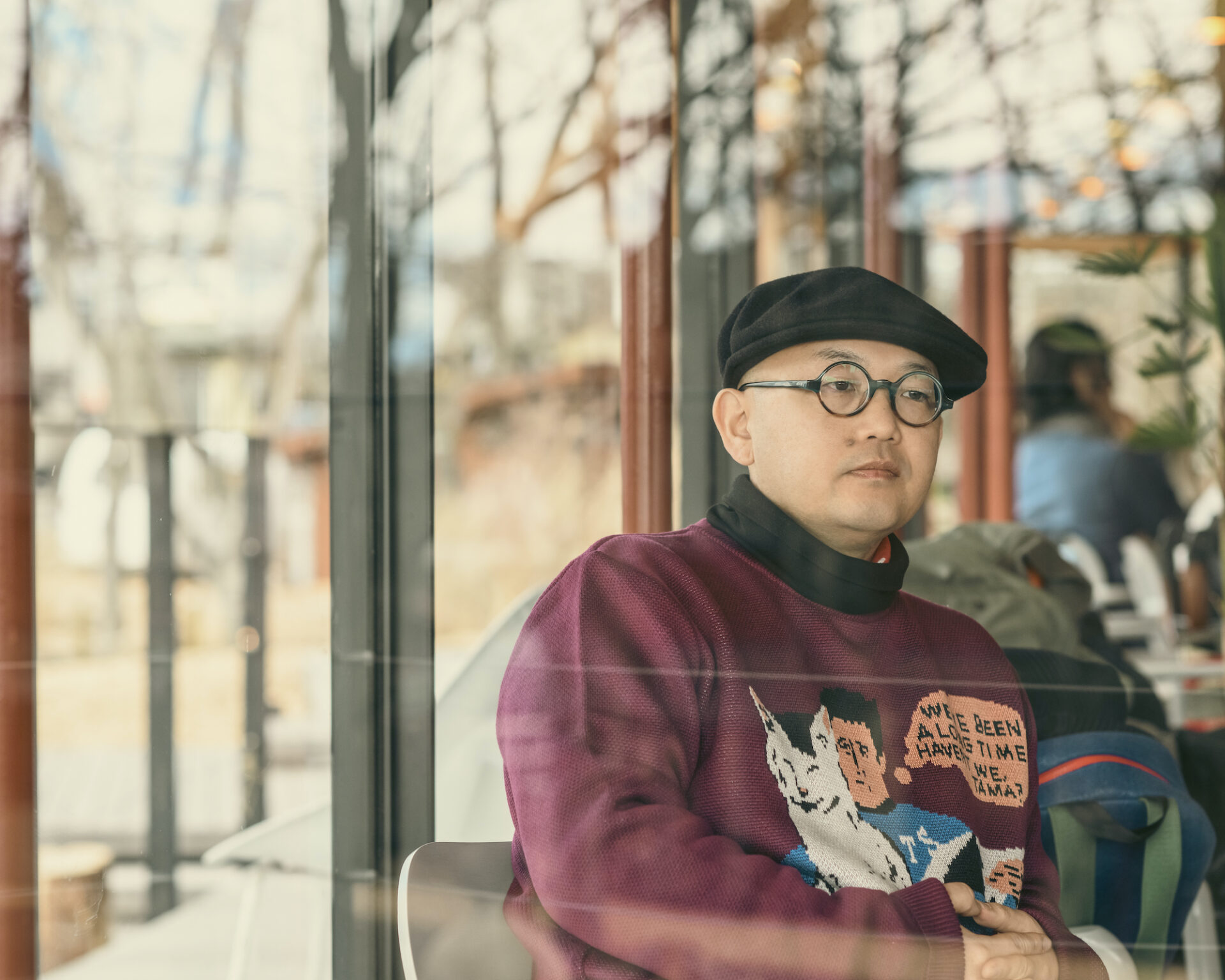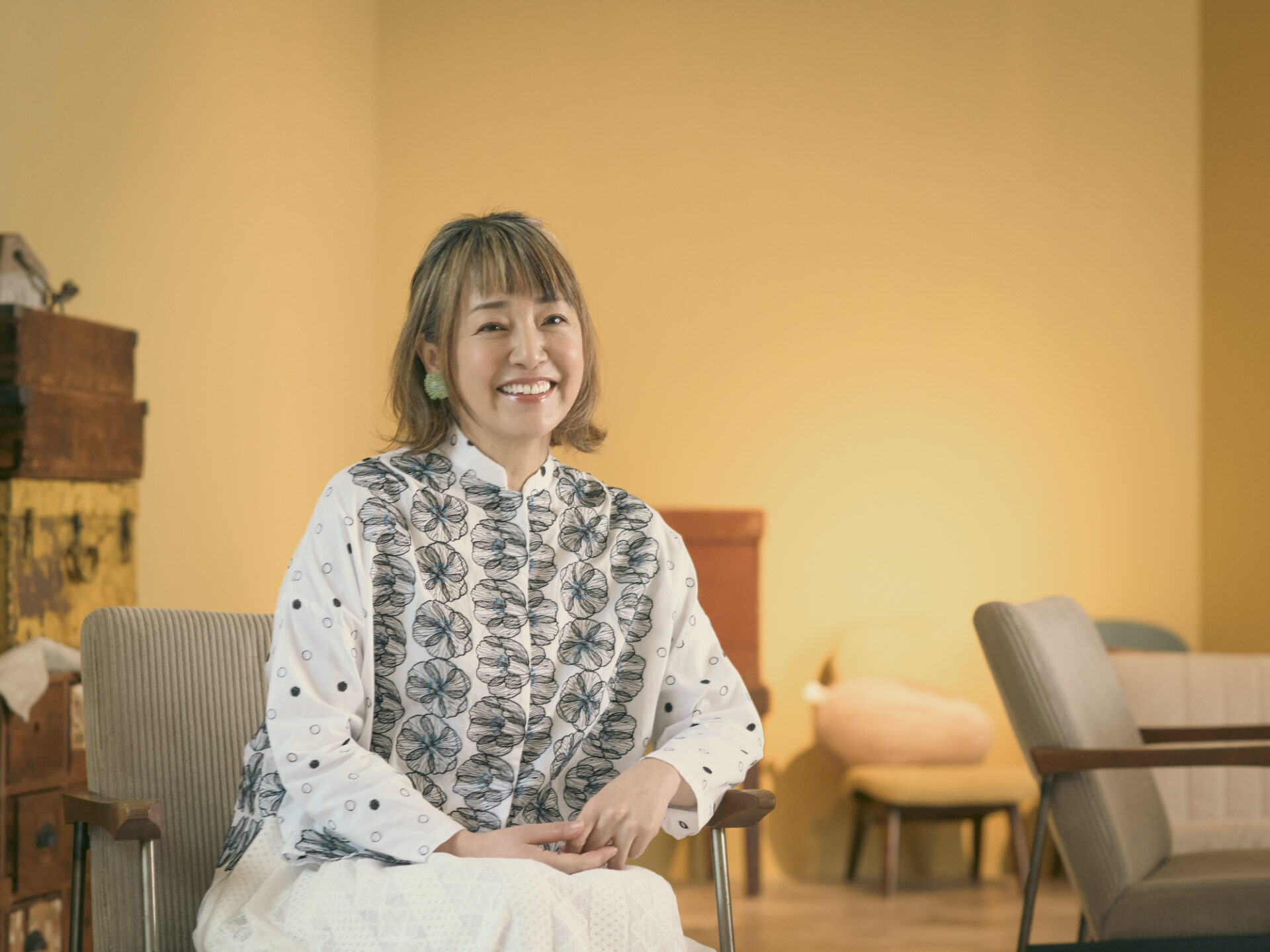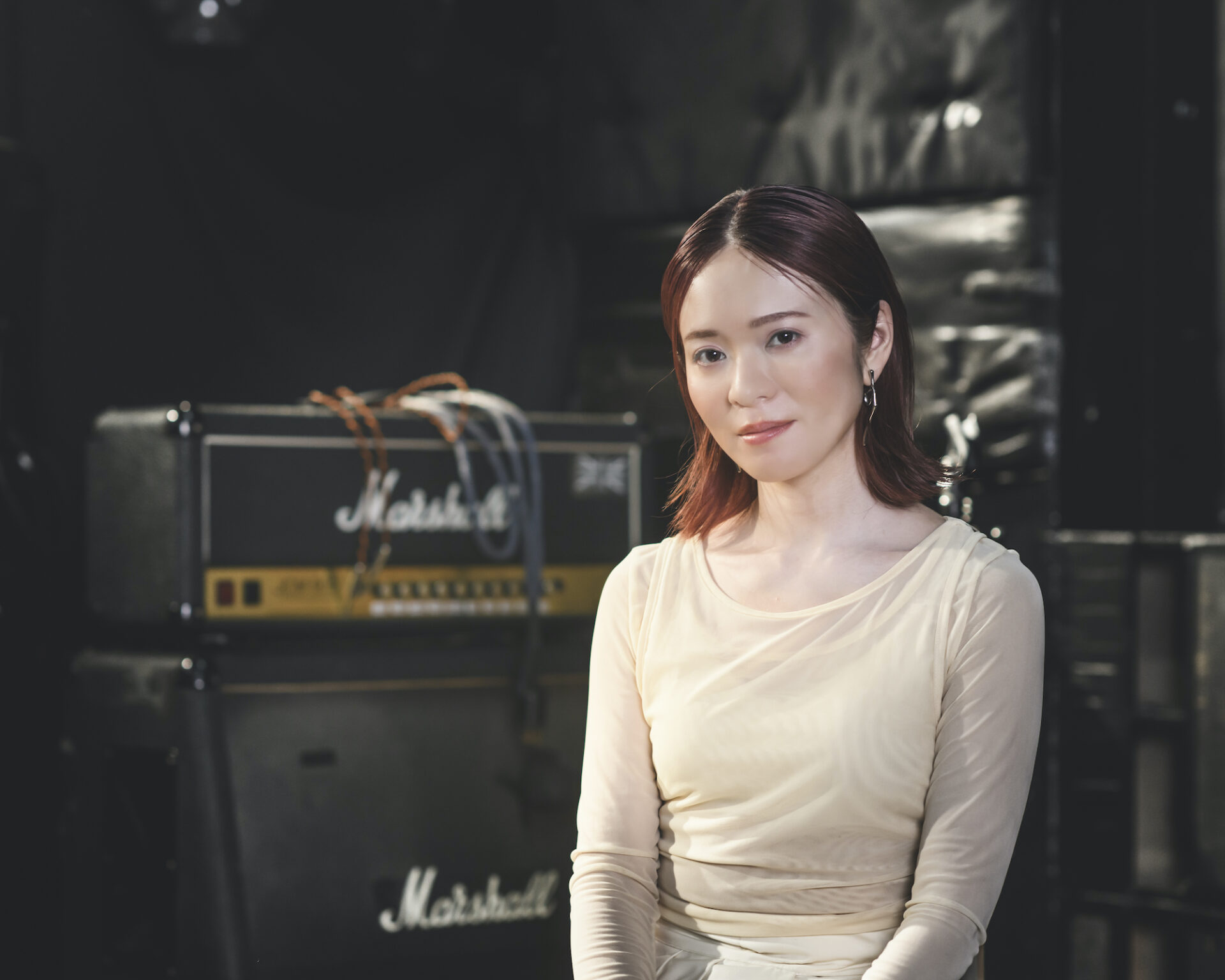
2025-04-03
Vol.15
Wellness Producer, NPO Japan Holistic Beauty Association Representative Director, Head Judge of the Sustainable Cosmetic Award
Beniko Kishi
-
What is Beauty Care?
-
Comprehensive Approach to Mind, Body, and Appearance
-
How to Approach the Inferiority Complex
-
Tastes are not Inherited
-
Distributing Happiness
-
For a Healthier Society
With the backdrop of a busy and stressful modern society, the idea that looking after your mind as well as your body is essential for your health is becoming widely acknowledged. Beniko Kishi established the Japan Holistic Beauty Association as a nonprofit organization in 2006 to convey the value that “Mind, body, and appearance are all connected.” “Beauty is a high level of health,” she says based on her experiences.
The idea of “Beauty,” which many people show interest in, is now not only about the body but about the consumption behavior that affects the global environment and the economy. Kishi and the OSAJI founder Masakazu Shigeta, who both “have been seeking the meaning of beauty care,” discussed ideas and issues related to establishing a beautiful cycle in the world of beauty to express gratitude for the gift of the earth and how to give back what we receive.
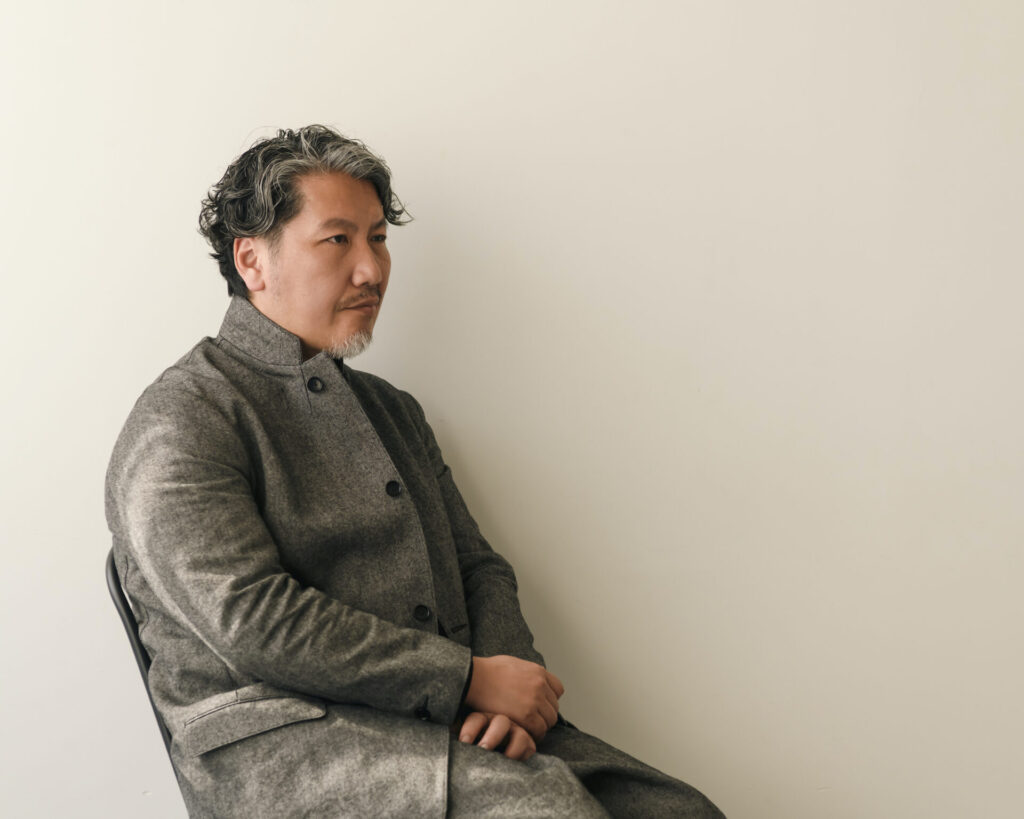
“If you can choose how you are, it will definitely lead to mental and physical health.” (Shigeta)
——Ms. Kishi, you are the 15th guest of this “Idealism” series.
Beniko Kishi: I am honored to be here.
——Mr. Shigeta, I would like to ask why you invited Ms. Kishi, who works in a beauty industry similar to yours, as the guest today.
Masakazu Shigeta: This is the third time we have met. The first time we met was…
Kishi: We first met at the party celebrating the establishment of “Good Unfiltered Vinegar Day.”
Shigeta: The PR person in charge of the event read my book “Taberu Biyou (Eating for Beauty)” and invited me. Ms. Kishi and I happened to be at the same table there. The second time we met was when I asked her to visit our office later, and we ended up chatting about various topics, putting aside the business.
Through the conversation, we got on the topic of how great it would be if females could choose their way of life more voluntarily since we live in an era where people can pick things freely. It was just around that time when I started to feel that creating a behavior, aesthetic sense, and social environment that allows people to decide how they want to be is the key to building a good beauty culture. Through the dialogue with Ms. Kishi today, I am sure I can take one step closer to the answer to the question I have been looking for: “What is beauty?”
Kishi: Thank you so much. I am glad to hear that.
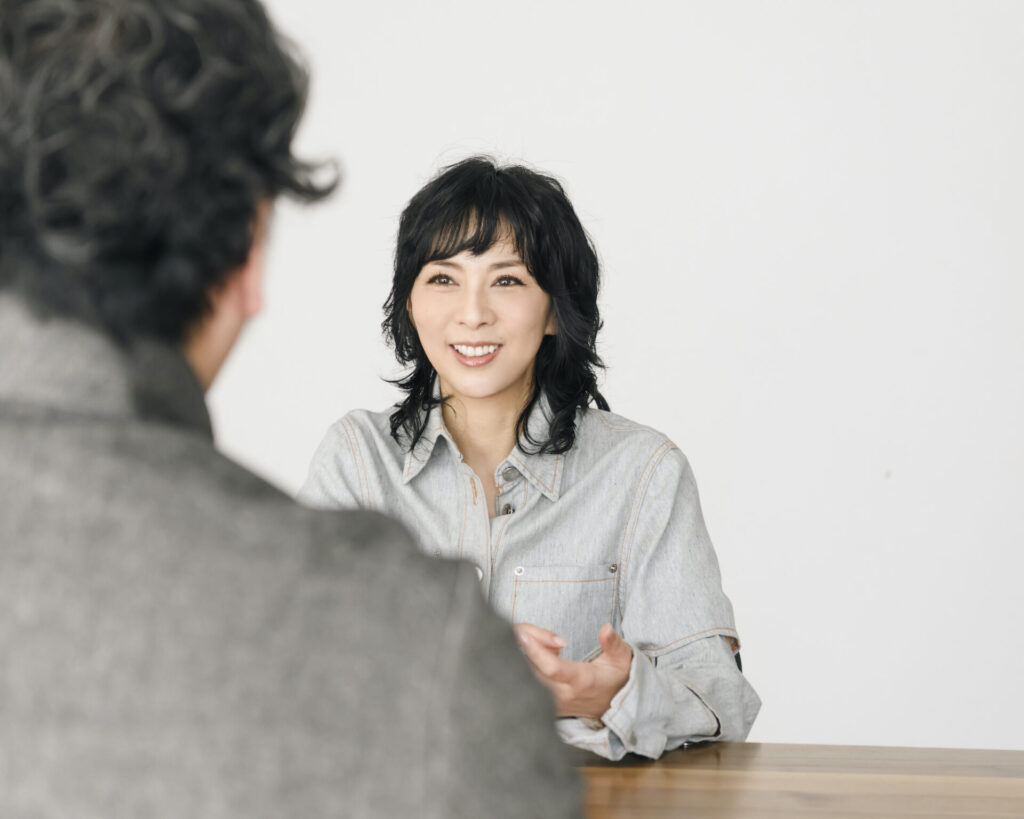
Shigeta: The other thing I want to mention today is the “Sustainable Cosmetic Award,” which Ms. Kishi plays a central role in. Environmental problems are a challenging theme, including how to manufacture and consume products with an awareness of sustainability. It is not like something you can answer with a black-or-white or 0-or-100 answer. Moreover, few Japanese people can precisely answer where to start.
The other day, I had an opportunity to read documents about a business plan I wrote about fifteen years ago. In the document, I said, “We will properly assess social value and environmental impact given by manufacturing.” I described what we now call “mission, vision, and value” in those words at that time. However, while I scaled up the company to secure employees’ livelihoods, the times have changed, and we no longer live in an era where we simply welcome making and selling as many products as possible. People often demonize excessive wrapping, but it is also true that products without it do not sell well. In that sense, the beauty industry has a strong egoistic aspect, and things become very complicated here if we try to be environmentally conscious. I would like to know how Ms. Kishi sees the situation as a person who plays a central role in the Sustainable Cosmetic Award.
——You mentioned two major themes: “What is beauty?” and “How can we maintain a balance between social and environmental value through manufacturing?” These might be pressing issues not only for Mr. Shigeta but also for those involved in the beauty and cosmetic industry.
Kishi: That is certainly true. How should we make the most of limited resources? The trend to request abundant, convenient, while at the same time, eco-friendly, and conscientious manufacturing and product selection is unlikely to stop. The question is, how can we change the direction to gradually return nature to its former state of abundance? The whole market is moving toward achieving the SDGs target by 2030 as set by the United Nations. Of course, nobody knows if we can achieve it. But we will never reach it unless somebody speaks up and starts something. Even if it is a small step, we have to take action to rebuild a three-piece set created by capitalism, that is, mass production, mass consumption, and mass disposal, into a proper circulation cycle. There is no doubt that the time has come for business owners and entrepreneurs to exercise their wisdom to achieve it.
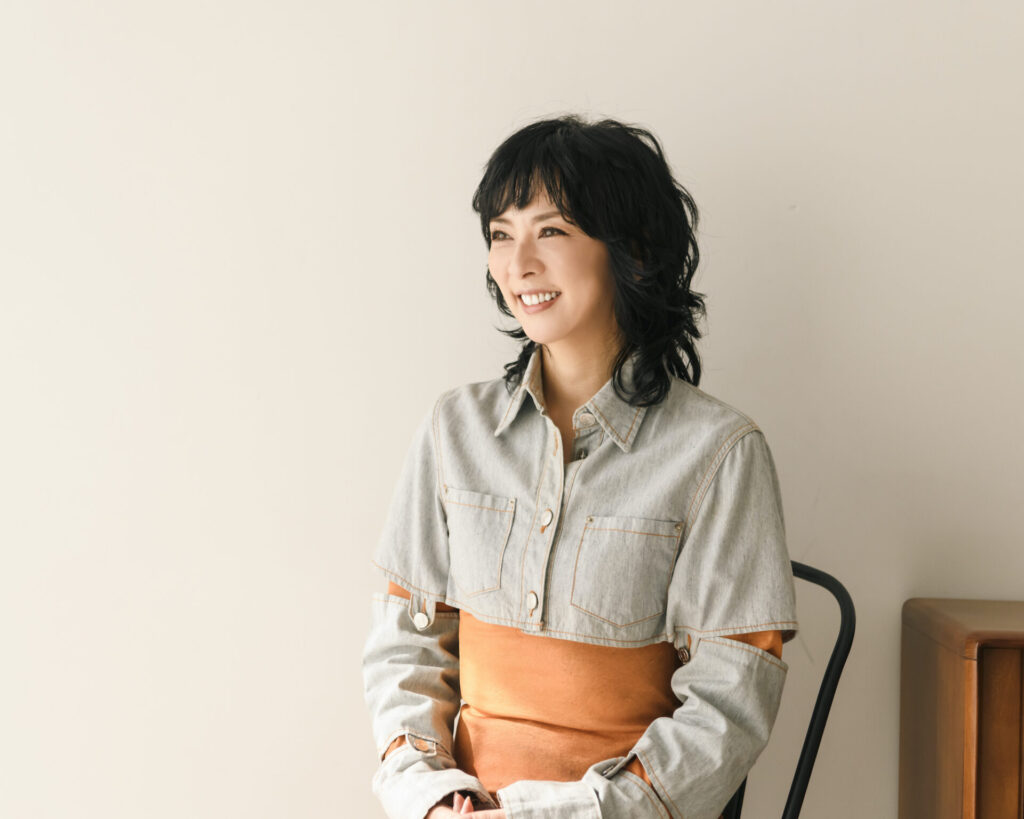
“The act of seeking the best health not only benefits your body but leads to the health of the global environment and the restoration of nature.” (Kishi)
——What was the reason you started working in the beauty industry?
Kishi: It all began when I started working as a reader model for a Shueisha magazine called “MORE” when I was in university. While working as a model, I was also involved in writing articles related to beauty, which I gradually enjoyed more than the job as a model. In the meantime, as I became able to earn some money from writing, I set up a beauty-related marketing company on my own instead of looking for a job at the time of graduation. As Shueisha was launching a new beauty-related magazine around the same time I started the business, I got involved in concept-making and editing. Sometimes, I even appeared in the magazine and its cover as a model, which was exciting and cool. But that is when I became unwell, which was a turning point in my life.
——Was it because you were overworked?
Kishi: Exactly. From then on, I changed my mind to review my physical and mental health, and that led me to set up a nonprofit called the Japanese Holistic Beauty Association in 2006.

——What is the main activity of the association?
Kishi: Our mission is to raise public awareness of self-care and promote the concept of holistic beauty, which is “the mind, body, and appearance are all connected.” At the time of establishment, there was a social atmosphere where if a woman got sick from work, people thought you didn’t have enough guts, and even if you suffered from menstrual pain, no one would care. People were more concerned with the Equal Employment Opportunity Law, and although so-called second-generation baby boomers entered society, the situation was such that many people collapsed from overwork, and I was one of them.
However, when I tracked back the cause of my unwellness, I noticed that everyday food and the environment around me strongly influenced my health. I realized I had been eating food I bought in convenience stores or eating out all the time. These things resulted in various problems in my body, such as my body becoming cold. Since our body is made up of the food we eat, I learned a lot of things from my unwellness, including the fact that you would never recover without proper food. At the same time, I felt the necessity to systematize the knowledge I learned and convey it to as many people as possible.
If you understand your body and know how to maintain and care for it, you can take a lot of measures when you enter society, more importantly, not in a chemical way but in a natural way. I set up the association because I wanted to share what I learned from my experiences with young people.
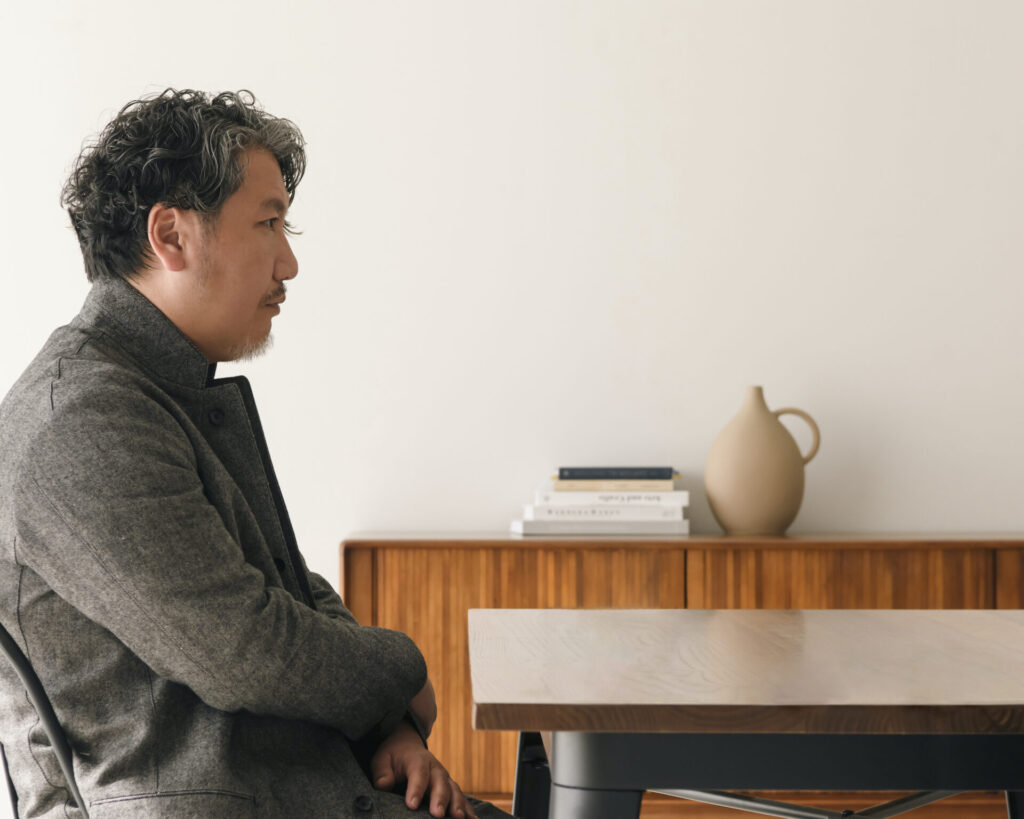
——So, your underlying idea is that maintaining a healthy body in a normal state is the most beautiful thing.
Kishi: Yes, our slogan is that beauty is a high level of health. And I want to make it known to people that pursuing this will lead to social contribution as well. That is my answer to Mr. Shigeta’s question about “What is beauty?” Beauty can only exist on the basis of good health. The act of seeking the best health will lead to the health of the global environment and the restoration of nature in addition to our own health. Therefore, continuing to be healthy is also good for society.
——We might find many other answers by exploring the relationship between beauty and society.
Kishi: It might be a way of self-expression for some people as well. I think it is fine that there are different answers for each person.
——It might be important to be able to choose the meaning and value of beauty by yourself. On the other hand, the power of marketing is very strong in the beauty industry, and many practices are being used to manipulate the consumer’s behavior through social media.
Kishi: That is right. We have to be cautious because there are excessive advertisements. That being said, I don’t think it is correct to completely reject the idea of pursuing fashionability and cuteness just because it harms the environment. Beauty adds color to life, and it is also a tool to express diverse humanity. That is what beauty should not lose as a way of enjoying life.
The same goes the other way around. Some people demonize UV rays because they cause freckles and wrinkles, but we can not live a healthy life without them. In everything, the key is how you perceive and use things. Overdoing is bad in anything, but not doing anything is not only the right thing to do, either. Choosing what to do and how to do it based on the balance between the two is what matters. It might sound like an exaggeration, but your thoughts, philosophy, and view of life and death will be important to think about.
Shigeta: There is a gradation in the options available, and it would be important to be able to make your own choices.
Kishi: I don’t trust those who say it is either 0 or 100 (laughs). It sounds like they have not even killed a bug. But, if you walk on the ground, you are killing lots of microbes, and you can not live without eating. The world is made up of many things, and it is in this cycle that we can live. The cycle is not about 0 or 100.
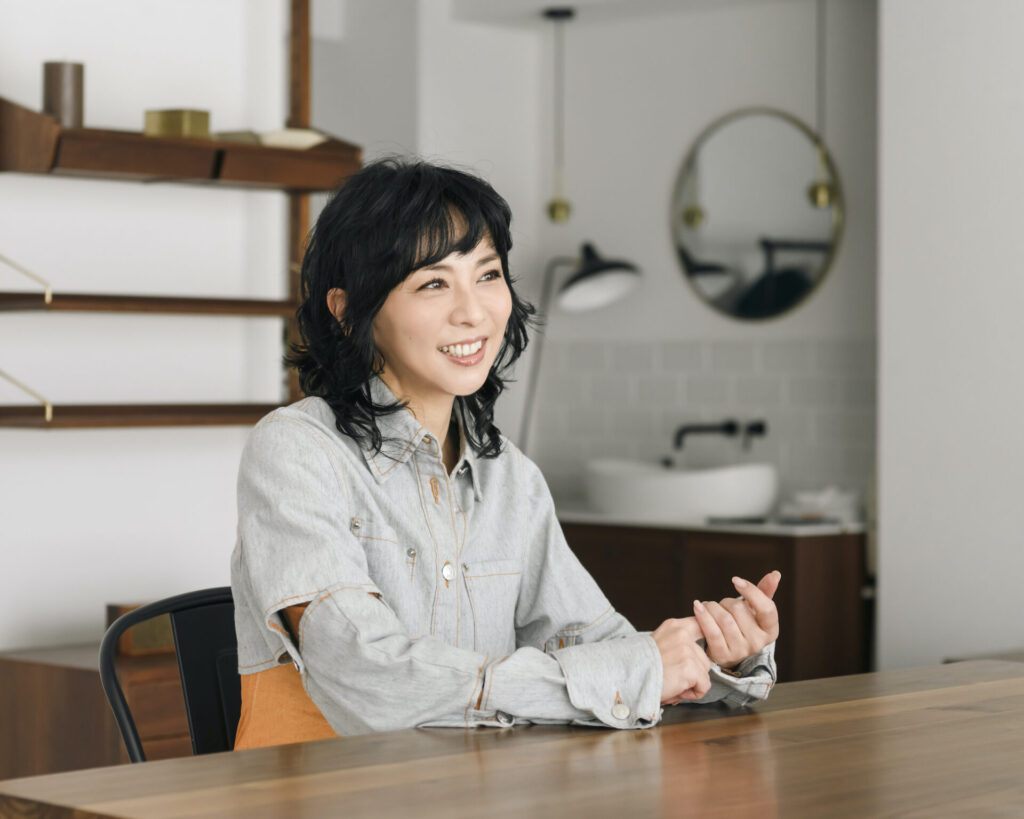
“There might be only one truth, but the way you see it is unlimited. Once you realize it, your outlook on life will change.” (Kishi)
Shigeta: From around 2010 on, the number of direct-to-customer(D2C) businesses gradually increased, and business practices to take advantage of consumers’ inferiority complexes began to spread even in the beauty industry. What are your thoughts on that?
Kishi: I feel sad, and, at the same time, their tastes are very tacky. It is like adults prey on children, just like taking candy from a baby. Therefore, I am strongly convinced that bringing back the initiative of product selection to the consumer’s side is important. Not a few people choose certain products because they are attracted by the dazzling moments of others on social media. It is a pronounced tendency, especially in the beauty industry. Of course, it is natural for everyone to want to become more pretty and cute, and there is no need to give it up. However, if you only focus on the other’s eyes, then the result will end up being mediocre.
Shigeta: Everybody has some sort of inferiority complex. If so, how to approach it is what matters. If you were to give advice to those with a strong inferior complex, what would it be? This is one of the permanent questions for me as well.
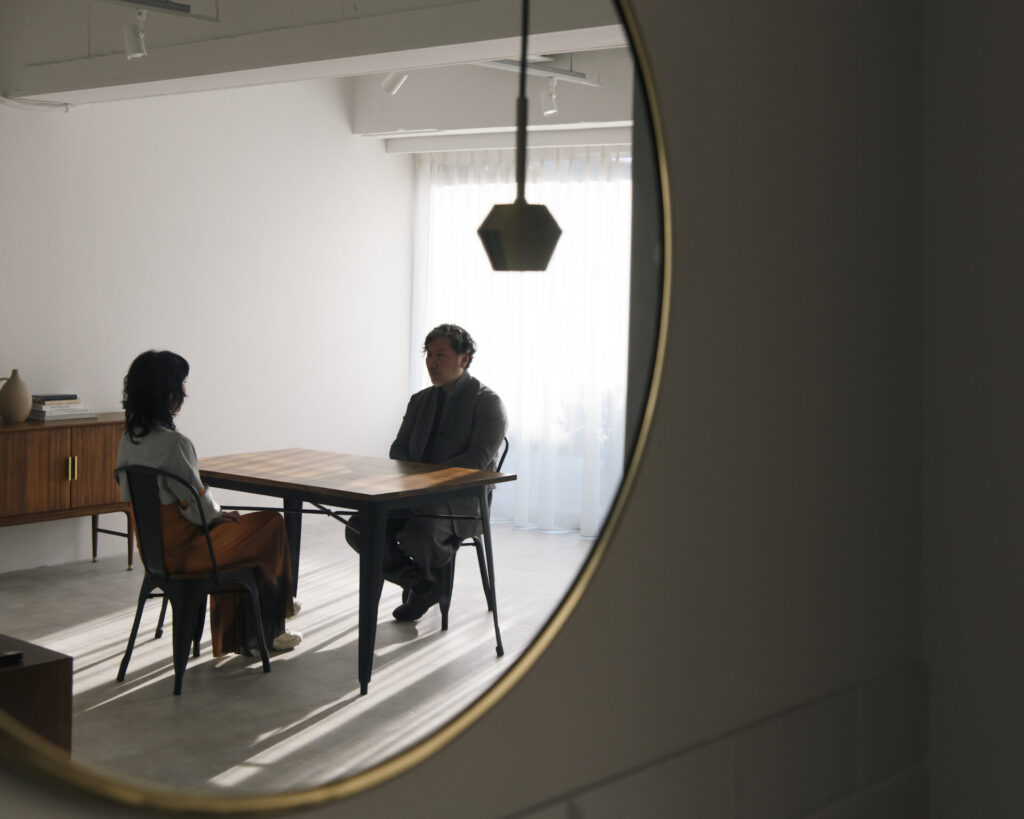
Kishi: In most cases, inferior complexes are connected with traumatic experiences in childhood. This is something you can understand by learning psychology. For example, those who were made fun of for being tall in their childhood dwell on the bad experiences even after they had grown up. In order to overcome this, it is good to think about the cause of your bad feelings. Once you have figured out the cause, then I want you to think about it from a different perspective. If you can imagine yourself as a basketball player, being tall is a strong point. If you have an inferiority complex in your single-edged eyelid, I want you to imagine yourself as a female with an oriental atmosphere, and I am sure there will be someone who thinks it is attractive. We call it the “inner child” in psychology. Telling your child-self who suffered emotional trauma that you, as an adult, understand how it feels can heal the feelings and emotions.
There might be only one truth, but the way you see it is unlimited. Once you realize it, your outlook on life will change. As you grow up, you will learn that there are as many different perspectives as there are people. I believe that is what makes people grow up.
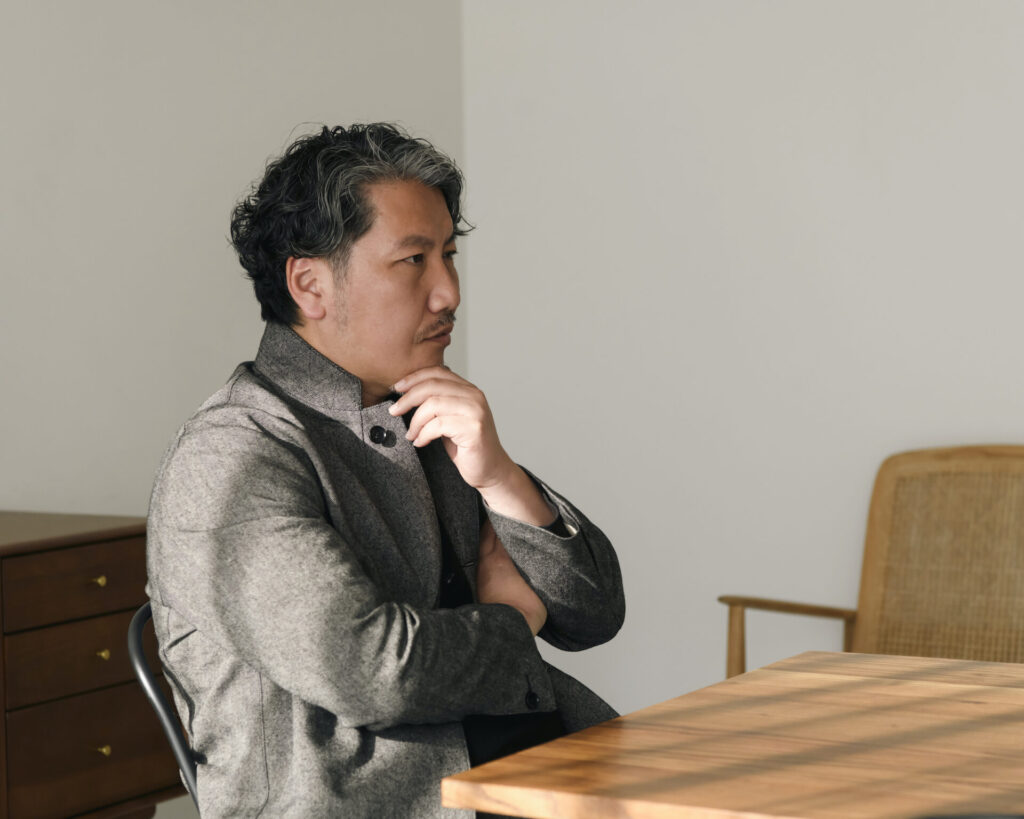
“By looking back on my own history, I realized that my father and teacher influenced me a lot, and my personality was shaped by the existence of my friends I admired.” (Shigeta)
Shigeta: Let me go off the track. The other day, I read a book about children’s sense of taste written by Jacques Puisais, a French professor specializing in food education. In his book, he says food preferences are not inherited, which really opened my eyes. I had disliked carrots for a long time just because my father didn’t like them. This type of thing is quite common. Children come to dislike the same things as their parents because they were taught that they taste bad in childhood. This is impression manipulation, in short. When something the parents do not like is put on the table, you are told to “try to eat.” You are gradually influenced by it, and your tastes get closer to that of your parents.
Now that I am older, I feel my father has affected me in various aspects of my life. I can find that even in my aesthetics and attitude towards work. The idea that “you should order silver-skinned fish in Sushi bars but never order toro because it is simply wrong” is something that I inherited from my father. However, it was actually delicious when I tried it. Now, I am trying to figure out how to get free from my father’s influences, always asking myself what I actually like.
Kishi: I am sure you were a good child.
Shigeta: You are right (laughs).
——Ms. Kishi, do you think your mother influenced you as well?
Kishi: In a positive sense, yes. My mother suffered from over-involved parents, so she tried to avoid being too involved with me. Her parenting with affection and trust made it possible for me to create my style on my own, so I am always grateful to her. However, I heard there are many cases where the reason people find difficulties in their lives lies in the relationship between parents and children.
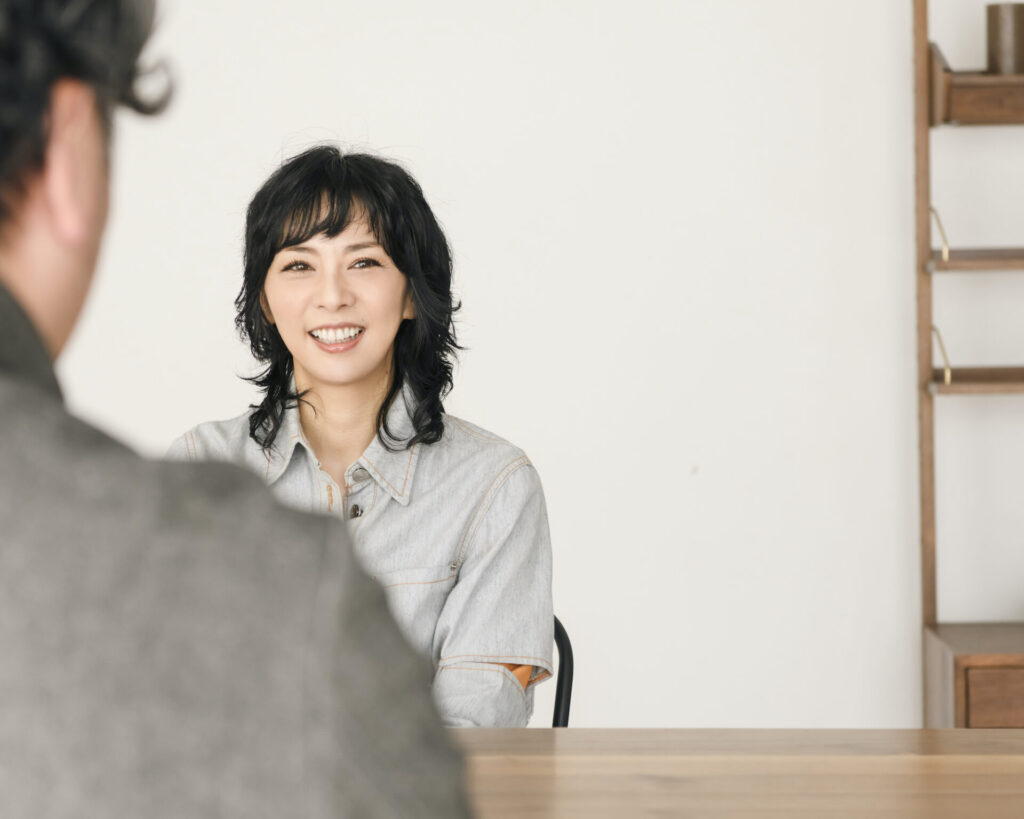
Shigeta: Those who grew up in a family with authoritative parents where they were not allowed to consult with their parents do not turn to someone for advice even after they grow up. These kinds of people often find it difficult to share information at work. Their attitude does not easily change, no matter how many times I tell them to do so.
When I have meals with staff members, I try to talk about the home environment as much as possible. I start by telling them about my story first and then ask them about their cases. I don’t have the know-how about counseling or psychology, but I try to tell them my opinion when I find something strange in what they say. I myself have aspects that might not be normal, so I think we can develop a sense of empathy by pointing them out to each other, and I hope they come at least to me for reporting and consultations.
——In the previous dialogue, you said you had started to consciously write your own history. I think the process gives you some opportunities to reflect on yourself.
Shigeta: Yes. It is a really great time. By looking back on my own history, I realized that my father and teacher influenced me a lot, and my personality was shaped by the existence of my friends I admired.
Kishi: It is an ultimate form of healing.

“We need to create a story where the whole world gets healthier by raising the value and price of items while curbing excessive consumption.” (Kishi)
——Can I ask you about the Sustainable Cosmetic Award that you are involved in as the head judge?
Kishi: We have declared that the award will end in 2030. I have been working as an ambassador for the Ministry of the Environment since 2016, and we started the project to set up an environmental award for consumer goods. We have organized and operated a working team that included people involved in setting environmental policy, such as Mr. Tokutaro Nakai, a former vice-minister of the Ministery of the Environment, and the experts in organic cosmetics, media, retail, human rights certification organizations, and students interested in the environmental issues.
The reason we have students as the judge is not just because younger generations have a higher awareness of environmental issues but because it is their generation that will ultimately pay for the result of current environmental issues. We think it is important to see how they would evaluate the products because they are the ones who will be affected and are directly involved with the issues. The judge’s ages ranged from those in their 70s to those of 18-year-old high school students. We want to create a world of cosmetics that is friendly to human beings and the world through discussion across generations.
——What do you focus on in judgment?
Kishi: We assess the whole process from the production to the disposal. Aldo, we place importance on whether there is no harm to the environment, human rights, and animal welfare as little as possible in the production process. Of course, we know manufacturing is not that easy, and having zero environmental impact is impossible. However, we ask about 90 questions on the entry sheet whether they have considered those points or tried to make them up as much as possible.
Through the process, the hard work behind the scenes often becomes apparent for the first time, which is hardly sensed by just checking the products, and we want to pick up hidden creativities on environmental considerations as much as we can and make them known to the world. You can also find elements of beauty in these stories, and we want to support thoughtful manufacturing by giving awards.
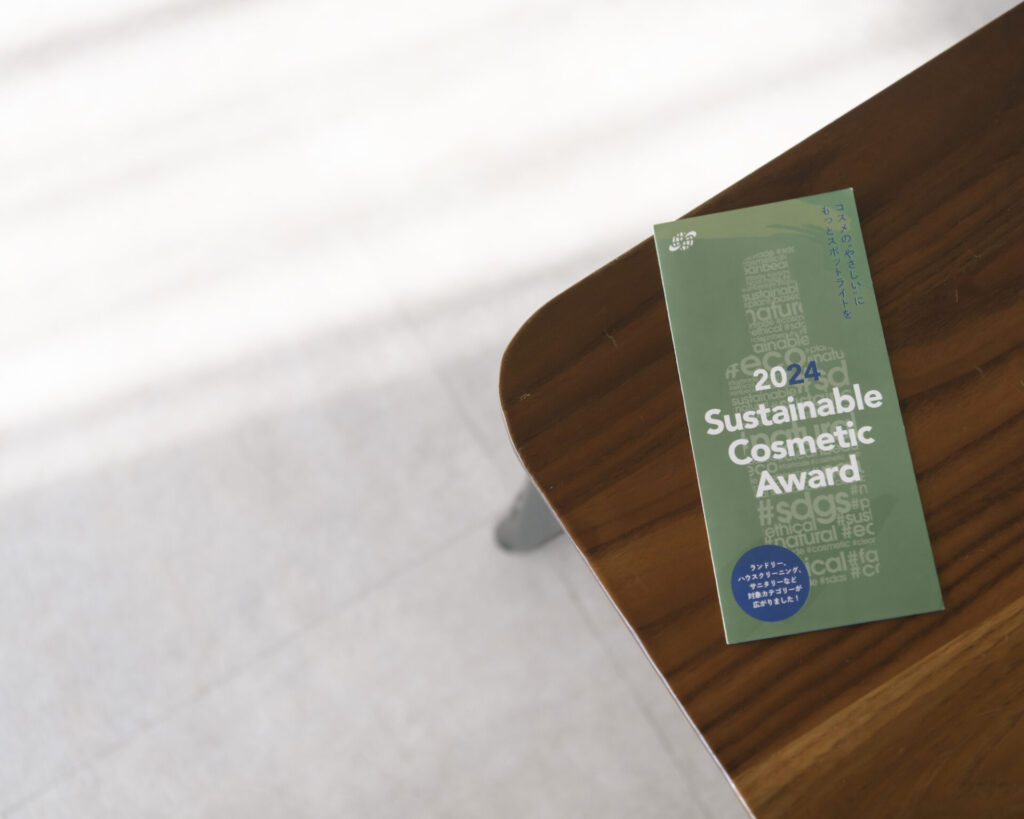
——I have an impression that manufacturers are starting to promote the production background these days.
Kishi: In the past, they would rather promote scarcity. It was like they promoted that their products were made of precious ingredients that can be obtained from a large amount of raw materials. Recently, however, their promotion has gradually changed and focuses more on the recycling-oriented society, such as the use of vegetables and fruits out of standards or biological water or lactic acid bacteria taken out from bamboo, which is the cause of the deterioration of woodland. If using certain products leads to the restoration of the natural environment, it means you are contributing to the biodiversity and bringing benefits to farmers. It is interesting to see how their focus has changed considerably from a little while ago. At first, they focused on obtaining organic certification, but that has gradually changed, and the current trend is that they promote their products with the basis that they engaged in the cycle of restoring the natural environment, although they do not have the certification. In addition to the benefits to consumers, they take into account the environment and employment of the areas where the ingredients are produced. They distribute and share happiness through their products, and I feel it is quite encouraging as they move toward the altruistic direction.
Shigeta: Thinking about consumer behavior in the future, what direction do you think it is likely to take? To be honest, the more we take such things into account, the more difficult it becomes to sell at the same price as before. People in Japan demand a lot of responsibility from manufacturers but very little from consumers.
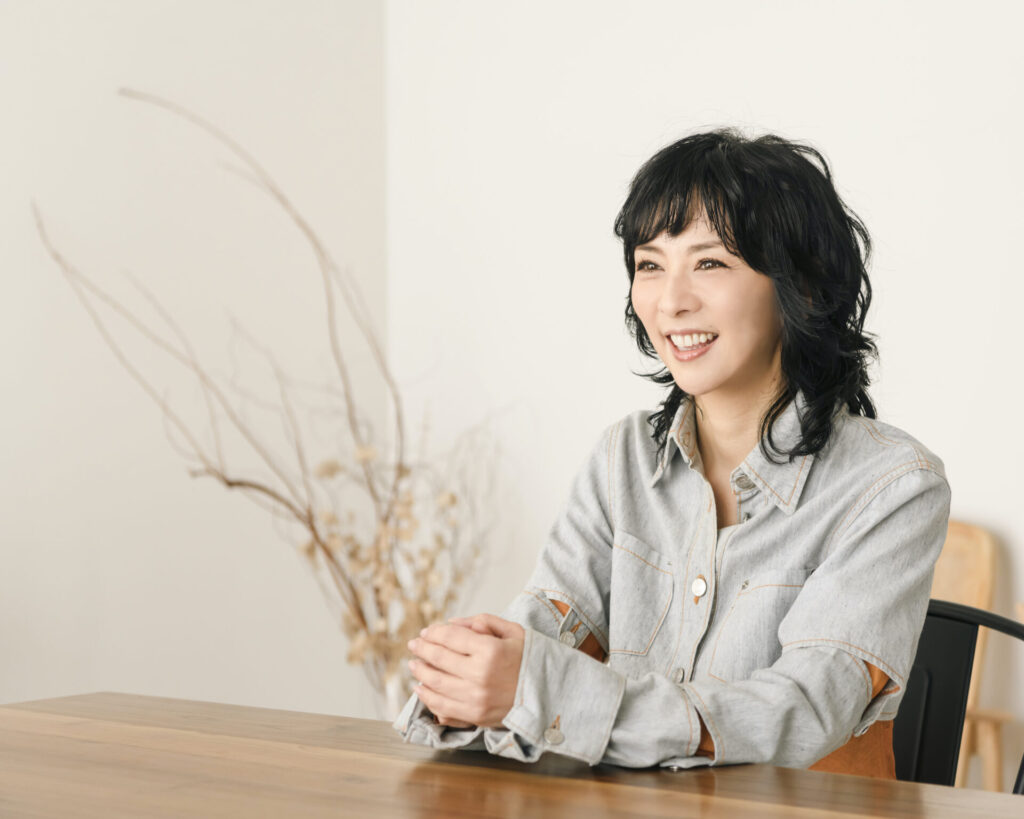
Kishi: That is certainly true.
Shigeta: When I gave a lecture on “social participation” to 5th-grade children, I told them that buying snacks at the supermarket after school is also a form of social participation. I told them the future could be better or worse depending on their choices, and they could even help people in poverty. I asked them if they had ever chosen snacks with such ideas.
The current elementary students are “SDGs native,” who have been taught a lot about SDGs at school. So, they have a good understanding of what eco-friendly manufacturing means. On the other hand, they do not learn enough about how to select items. No matter how much you understand the importance of SDGS and harmony with the global environment, the world will not change unless the awareness of consumption behavior is low. I felt I saw the reality.
Kishi: After all, the circle is not connected. It is like the final piece is missing. Therefore, we have to keep saying that buying is a form of voting. When you are to make a choice, it is going to be very important for the products to have clear information on ingredients and manufacturing methods, and consumers should have the initiative to choose.
Choosing items at a low price because you do not have much money or choosing items at a high price because you want to invest in body and health are both correct. However, if the choices are polarized into these two extremes, it becomes a problem. Furthermore, there is a reality that the economy is supported by a market that promotes the consumption behavior of buying low-cost items and disposing of them straight away. We all know that we will end up in a chicken race at this rate, and we need to gradually reduce consumption. Manufacturers and consumers need to choose products with an awareness of such a situation; otherwise, we will end up cutting our own throats. Those who live in a messy home tend to have consumption behavior that they buy items because it is cheap, and such behavior can be a factor in obesity and physical problems. Many chronic diseases are caused by overwork, stress, and excessive consumption of food and drink. In other words, “excessiveness” causes all problems. We need to create a story where the whole world gets healthier by raising the value and price of items while curbing excessive consumption.
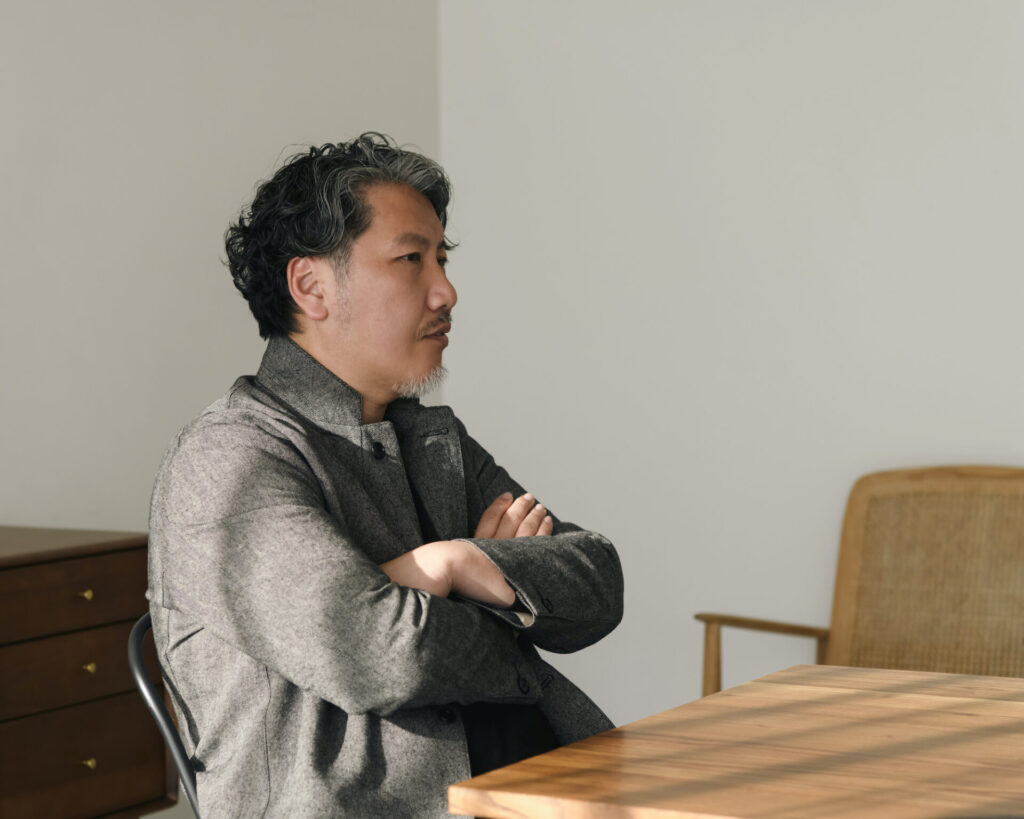
“Manufacturers and consumers need to work together to figure out the right price.” (Shigeta)
——Do you have any idea for encouraging consumption behavior for a healthier society?
Shigeta: Consumption is surely important to achieve a better society. However, to be honest, I am not sure how we should think about the right price for it. So, we are planning to do an experiment over the course of this year. We are going to grow sunflowers in a four-tan field in Minakami, Gunma, extract the oil, and then mix it with distilled lindera gathered nearby to make hair oil with its aroma. We do this to see how much it will cost to make hair oil ourselves with 100% Japanese ingredients. We will record the whole process because we think it is a social experiment in a sense.
I think our sense of price is very paralyzed now. Everyone thinks a hairdryer of 30,000 yen is expensive and takes it for granted that they can buy one for 4,000 yen, while there are almost 100,000 yen hairdryers on the market. I am not saying that it is the right price, but we need to discuss what the right price should be.
On the other hand, there is a reality that we can not hold on anymore with the current cost structure as before. For manufacturers like us, we need to start by discussing what the right price we buy from the raw material manufactures should be.
The reason some items are sold at extremely low prices can come at the expense of raw material manufacturers or suppliers beyond the supply chain. That is why they can sell at such low prices. Manufacturers and consumers need to work together to figure out the right price by surveying the details and deciding not to buy products if they think it is strange to be able to buy them at such low prices.
Kishi: I think it is very gentlemanly behavior. Essentially, human beings live on gifts from nature. However, we are unbelievably ignorant of the root, even though our resources are in nature. Similarly, few people know how the products in their hands are made and delivered to them even though they know the products well. It will be a great opportunity for the industry to change if OSAJI shows how much it costs to turn raw materials into products in detail, starting from the sowing of the seeds. Some people might wonder what the price of the products they have been buying was, and others might notice the possibility that the low price had been realized at the expense of exploitation and unhappiness. OSAJI’s action will be a starting point to start thinking about such things.
——Your product can be a nominee for the GOLD prize at the Sustainable Cosmetic Award.
Kishi: We look forward to your joining us.
Shigeta: Yes, I will do my best to make an entry (laughs).
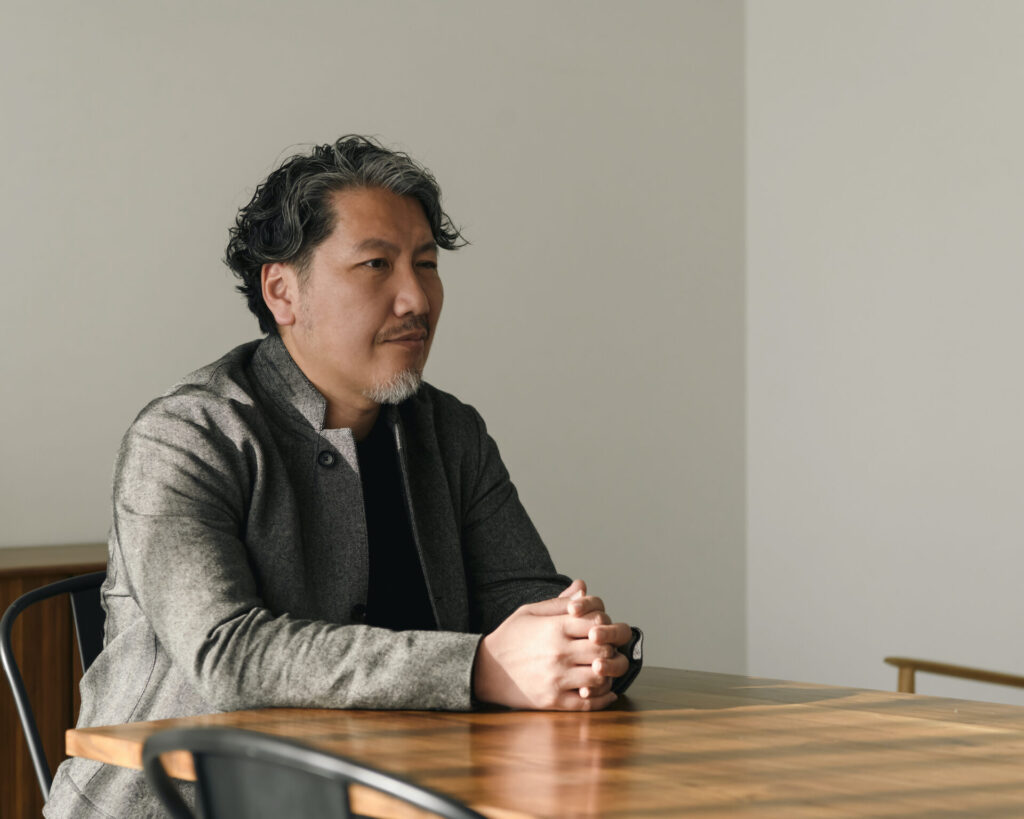
Profile
-
Beniko Kishi
Born in Tokyo in 1974, Kishi started working as a model for a women’s fashion magazine while studying at Keio University. She also participated in the launch of cosmetic brands and the operation of beauty websites. After graduating from university, she set up her own beauty marketing company, and she was also involved in the establishment of a beauty magazine and appeared on the cover. In her late 20s, she suffered from unwellness and experienced a recuperation period, which made her reconsider her lifestyle and realize the importance of natural human healing power. The experience led her to establish the Japan Holistic Beauty Association in 2006. The association works with professionals in beauty, health, and medicine to promote the importance of self-care in women’s minds and bodies, organize an accreditation exam, and work to develop human resources. Also, she provides a wide range of wellness seminars to help people bring out their natural healing power and immunity. Since 2016, she has been involved in the “Let’s Connect and Support Forest, Community, River, and Sea Project” organized by the Ministry of the Environment. She advocates various lifestyle-based recycling actions that are friendly to the people and the earth. She has been the head judge of the Sustainable Cosmetic Award since 2020. She is also a permaculture designer, a fermented food specialist, and a miso sommelier.
-
Masakazu Shigeta
After working as an engineer in the music industry, Shigeta began his career as a cosmetics developer in 2001. From 2004, he worked on various cosmetics brands in the healthcare business of Nitto Denka Kogyo Co., Ltd., a metal surface treatment company founded by his great-grandfather. In 2017, he founded “OSAJI,” a skincare lifestyle brand, and became its brand director. In 2021, as a new store of “OSAJI,” he produced “kako,” a specialized shop for home fragrances and perfume in Kuramae, Tokyo. In the following year, he opened a combined shop of “OSAJI,” “kako,” and a restaurant, “enso,” in Kamakura, Kanagawa. In 2023, utilizing the technical skill of Nitto Denka Kogyo, he launched a pottery brand, “HEGE,” and in October of the same year, he became CEO of OSAJI Inc. He also has published books on beauty and held cooking classes and events focusing on food, which is the origin of beauty. He released a collaborative album with F.I.B JOURNAL called “Gensho hyphenated” in November 2024 and has been expanding the range of activities.
Publications
Taberu Biyou (Eating for Beauty) (SHUFU TO SEIKATSU SHA, 2024)
42-Sai ni Nattara Yameru Biyou, Hajimeru Biyou (Beauty cares to quit and start when you turn 42) (Takarajimasha, 2022)
Information
Japan Holistic Beauty Association
The association was established in 2006 by Ms. Kishi based on the idea of promoting a holistic approach to beauty that includes not only physical appearances but also mental and physical health. The association offers information and runs wellness seminars and events to promote the idea of “Holistic beauty,” where beauty and mental and physical health are considered side by side, as well as the knowledge of self-care. In 2010, the association launched the “Holistic Beauty Certification Exam.” The exam provides guidelines for making choices on beauty and health information, and it attracts interest not only from the general public but also from those involved in the beauty industry.
https://h-beauty.info/
Sustainable Cosmetic Award
The award was established in 2019 as the first domestic award to assess cosmetics and fine toiletries from the perspective of SDGs. The founders are volunteers from the ambassadors for the “Let’s Connect and Support Forest, Community, River, and Sea Project” organized by the Ministry of the Environment. By assessing and awarding the whole process from raw material production to manufacturing, retail, distribution, consumption, and disposal, the award aims to promote the sustainability of cosmetics that are friendly to both human beings and the earth. Along with the international goals of SDGs to create a sustainable and better world by 2030, it has been announced that the award will end in 2030.
https://sustainableaward.jp/
-
Photographs:Eisuke Komatsubara
-
Text:Masahiro Kamijo
NEWS LETTER
理想論 最新記事の
更新情報をお届けします
ご登録はこちら
ご登録はこちら
メールアドレス
ご登録ありがとうございます。
ご登録確認メールをお送りいたします。
